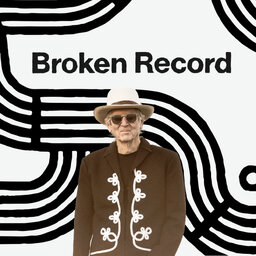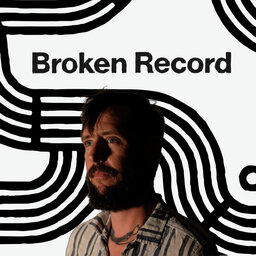Giles Martin, Part 1
Giles Martin may be the son of famed Beatles record producer Sir George Martin, but he’s also an acclaimed producer and composer in his own right. He’s worked on projects with The Rolling Stones, Elton John and Metallica, and is celebrated for his work remastering albums from The Beatles, including Sgt. Pepper’s, Abbey Road, and The White Album.
Last October Giles’ remaster for Revolver was released along with never-before-heard home demos and outtakes from The Beatles. Giles was able to separate the original 1966 mono recording tracks with the help of director Peter Jackson’s audio team, who used AI technology. Giles' resulting mix allows listeners to hear the original recordings with clarity and precision like never before.
On today’s episode Rick Rubin talks to Giles Martin about his approach to remastering the Beatles and the responsibility that comes along with it. Giles also talks about growing up in the music industry, why he didn’t have a stereo in his house as a young boy, and how he became his dad’s ears in studio sessions after his father lost his hearing.
You can hear a playlist of some of our favorite Beatles songs remastered by Giles Martin HERE.
 Broken Record with Rick Rubin, Malcolm Gladwell, Bruce Headlam and Justin Richmond
Broken Record with Rick Rubin, Malcolm Gladwell, Bruce Headlam and Justin Richmond


